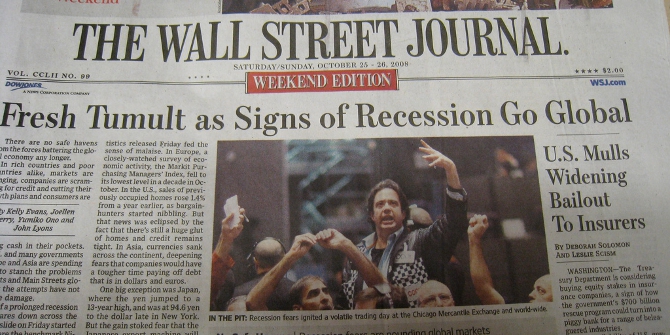 Companies and business schools alike face a challenge, writes Ken Fireman.
Companies and business schools alike face a challenge, writes Ken Fireman.
With one deal, MetLife bought itself a great opportunity – and a significant problem. When the US insurance giant acquired American Life Insurance Co. in 2010, it instantly enhanced its position as a global force in its industry. The company’s international presence rose from 17 countries to 64, with new operations reaching from Egypt to Lebanon to Nepal. But MetLife’s management discovered that something crucial to this new profile was lacking: leaders who had the international background required to seize the moment. Fewer than 20 percent of the company’s top executives had global experience.
The solution was a global mobility program that identifies certain employees as high-potential executives and immerses them in new markets, freelance correspondent Susan Ladika wrote in a recent report for SAGE Business Researcher. Within five years of the acquisition, about 200 MetLife employees, including 45 senior executives, were either on international assignments or prepping to go abroad.
“We needed our more senior leaders to have international experience as they moved through the management hierarchy so they could really understand the complexity of operating in a global business context,” said David Henderson, MetLife’s chief talent officer and executive vice president of human resources for its global functions.
MetLife’s experience reflects a growing reality: As the world becomes ever smaller and more interconnected, the ability to train and manage an international workforce has become a key requirement for corporate success. But finding sufficient talent to handle this challenge can be a daunting task, one that requires careful planning and a significant commitment of resources. And it is not clear that business schools at US universities are doing enough to meet the challenge by preparing the next generation of managers for life in this globalised environment.
The changing landscape is reflected in the sheer numbers of multinational corporations. There are now more than 100,000, up from 40,000 two decades ago, and they employ tens of millions around the globe. Some of the world’s best-known brands, such as Nestle and Honda, now have most of their operations and workforce outside their home country, which means more employees than ever are being sent on international assignments. Many multinationals are finding their greatest growth opportunities in countries outside the developed world, such as India, China and Brazil.
As a result, these transnational corporations must master a delicate balancing act to manage an increasingly diverse workforce while maintaining their own corporate culture and norms, Ladika wrote. That takes the right kind of human capital. A survey of more than 350 large companies in nine countries done in 2013 by Ipsos for the British Council found that employers particularly valued employees who showed understanding of different cultural contexts and viewpoints, demonstrated respect for others and knew a foreign language.

“Our clients increasingly operate seamlessly across borders,” said Peter Lacy, a global managing director with the management consultancy Accenture. “Our people need to be able to do the same. That mindset comes from being exposed to new business cultures and experiences that come with international placements.”
But finding talent that meets this standard can be difficult, and the stakes are substantial. A survey of more than 800 US companies in 2014 found that 86 percent said their overall business would grow if they had more staff with international experience, and 43 percent said it would increase a great deal.
“Global companies are woefully understaffed when it comes to having employees with global experience,” Robert Salomon, associate professor of management and organizations at New York University, tells Business Researcher. If a company gets it right, it can prosper; if not, “at the very least it will result in unforeseen costs,” Salomon says. “At the worst you’re looking at outright failure. Cultural differences can bring a company down.”
It was just such a cultural disconnect that reportedly played a role in undermining the joint venture between vente-privee.com, a French luxury e-commerce company known for its flash sales, and American Express. In 2011, the two companies announced the creation of vente-privee USA. The venture lasted just three years. American Express officially said that because the operation was taking longer than expected to become profitable, the companies had decided to part ways and focus on other priorities.
But former employees told Fortune magazine that vente-privee USA went astray because French officials failed to understand the American market, and the entire US management team ended up leaving. Employees said ventee-privee’s European co-founders disliked efforts to make the American website more user-friendly and didn’t understand why it included a Facebook share button, something typical for US e-commerce sites, Ladika wrote.
Even as companies increasingly prize business-school graduates with international skills, experts are raising questions about whether US universities are doing enough to provide this training. A report by the Association to Advance Collegiate Schools of Business (AACSB) International said current efforts by business schools to globalize their educational focus are typically “independent and fragmented.” They are mostly focused on diversity and cross-border partnerships for student exchange, “with insufficient emphasis on learning experiences and intended outcomes,” the report said.
“I think there’s a lot of rhetoric. I think there’s a big gap between rhetoric and how they actually do in preparing students” for global careers, says Andrew Molinsky, professor of international management and organizational behavior at Brandeis University in Massachusetts.
Some things are changing. More international students are enrolled in US universities, creating more opportunities for students to interact with those from different cultures. Students have more opportunities to spend time abroad, through options such as two-week study trips that give them a firsthand look at how business is done in various countries.
Salomon says things have improved since he began his teaching career in 2000. At the same time, he says, “I still think there’s a long way to go.”
This post is based on the report in SAGE Business Researcher, by Susan Ladika. and originally appeared at LSE Business Review.
Featured image credit: MetLife building from the Empire State building, by Martin-D1, Public Domain
Please read our comments policy before commenting.
Note: This article gives the views of the author, and not the position of USAPP– American Politics and Policy, nor of the London School of Economics.
Shortened URL for this post: http://bit.ly/2bPZRtl
_______________________________
 Ken Fireman – SAGE
Ken Fireman – SAGE
Ken Fireman is managing editor for SAGE Business Researcher, which delivers deep dives on contemporary business issues to students and faculty twice a month. He was previously a senior editor for economics and politics at Bloomberg News and a White House correspondent, national political reporter and Moscow bureau chief for Newsday. @kfireman1






